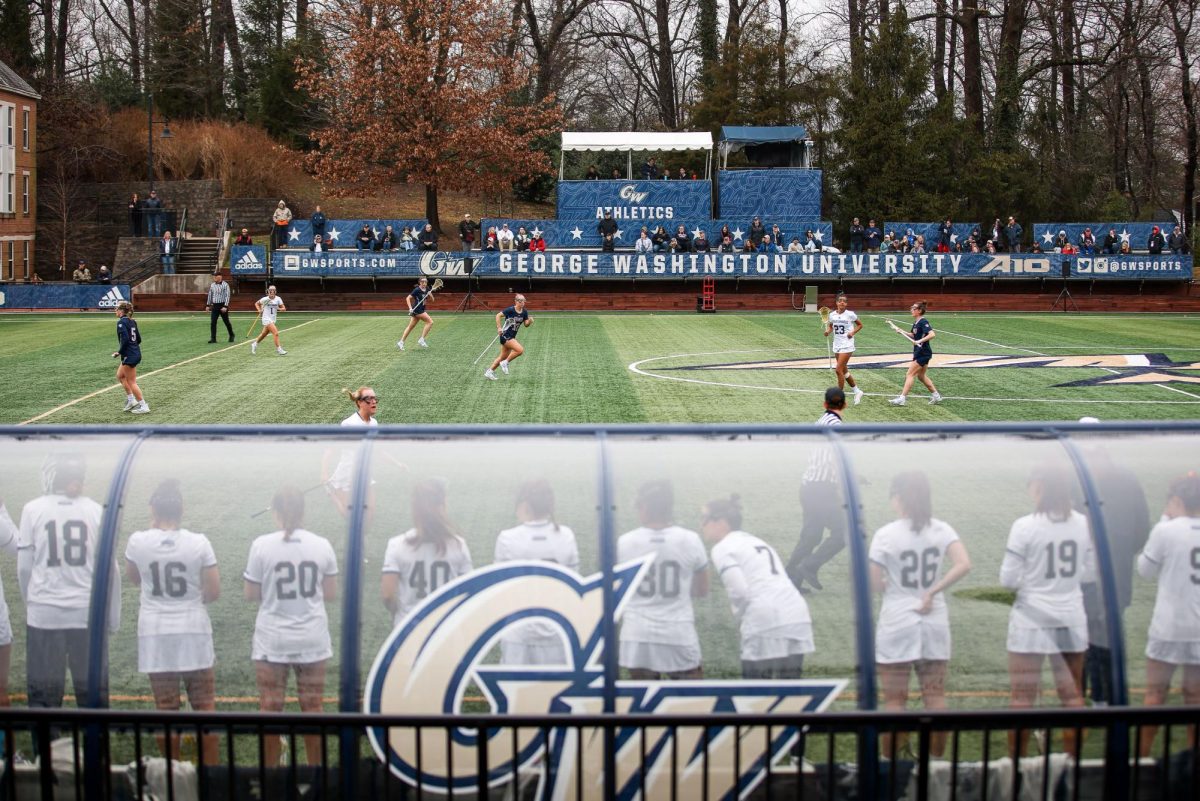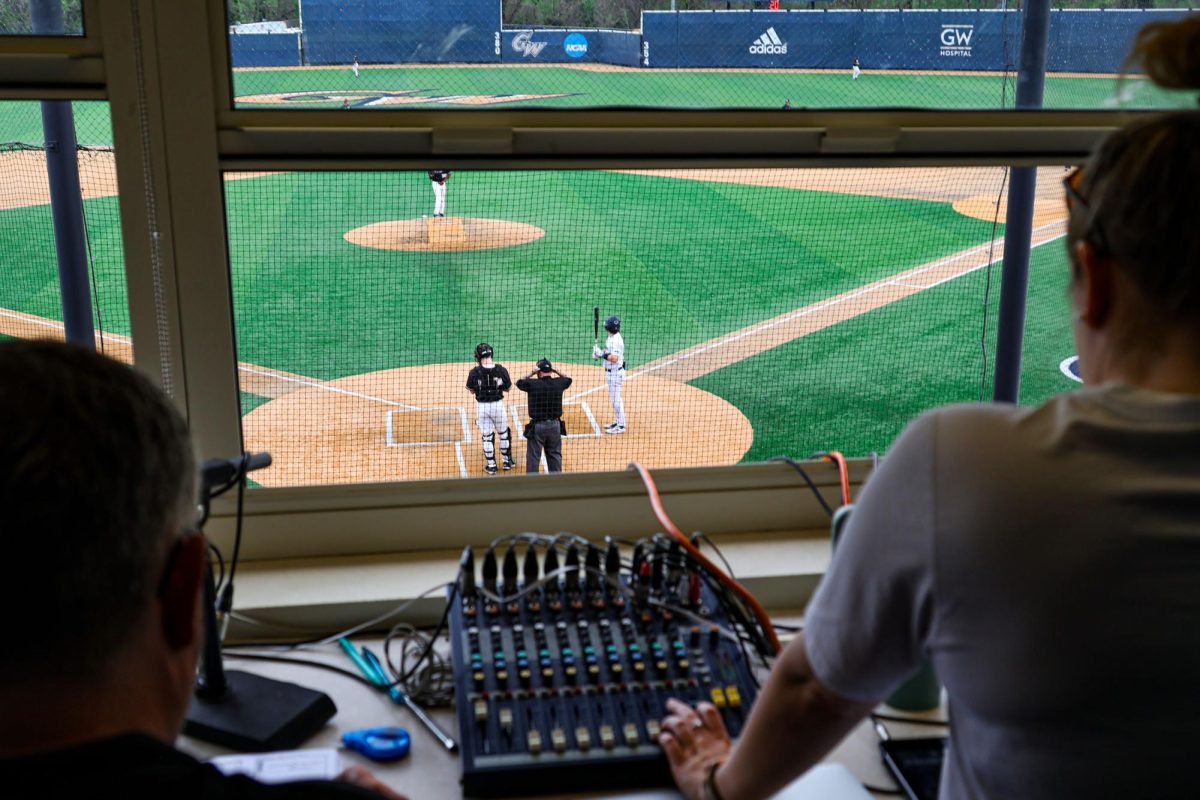Take any political science class and one of the first things you learn is the ‘expectations game.’ Be it debates or elections or performance in office, success is predicated on exceeding expectations and looking like a winner in the public eye, regardless of actual performance.
Considering politics constantly uses sports cliches, it seems fair to apply this political cliche to sports, and in doing so, it’s easy to understand why some people are wondering if the GW women’s basketball team is in decline despite making the NCAA Tournament in three of the past four years.
Before head coach Joe McKeown arrived in 1989, the program was perpetually pitiful and barely noticeable. But after a quick turnaround and a remarkable run in the mid-90s, when the Colonials were regularly ranked and winning NCAA Tournament games, expectations rose dramatically.
Just making the brackets in March stopped being good enough and 1997’s Elite Eight appearance gave fans reason to believe a national championship could be in the near future. But since that memorable year, the Colonials haven’t made it back to the Sweet Sixteen, and this year’s embarrassing opening-round loss to DePaul only adds credibility to the question: Are the program’s best days behind us?
Clearly McKeown and the Colonials became victims of their own success, as people like me made constant comparisons to the mid-’90s teams that only added to the already tangible pressure created by always being the conference favorite. But it may just be that the program became a victim of the game’s success as much as its own.
Since McKeown took GW to the Elite Eight, women’s college basketball has grown in popularity as more girls play the game and more fans watch. While this is obviously good for the sport, it could be bad for GW.
In a conversation I had with McKeown earlier in the year about recruiting, he said that an increasing obstacle with the game’s growing national exposure has been battling name recognition caused by men’s programs and bigger conferences.
“I would be talking to a player (in the early ’90s) who was looking at us and Duke, and I would say ‘You realize if you go there you won’t be playing for Mike Krzyzewski, right?’ And they would just look at me, like ‘Oh, yeah.'”
But with the Duke men as a perennial powerhouse, the Duke women attracted similar talent and developed into one of the nation’s best teams by the late ’90s.
Similarly, McKeown said parents often push for their kids to play in one of the six power conferences (the Pac-10, Big 10, Big 12, SEC, Big East and ACC), regardless of the team.
“A girl’s dad says, ‘My daughter is playing in the Big 10,’ and that’s that. It doesn’t matter that we’re in the (NCAA) Tournament and she’s going to go to play for a losing team. They get it in their heads that they want to say their daughter plays in the Big 10.”
As a small school in the Atlantic 10 with a men’s team that has struggled since the late ’90s, McKeown’s ability to attract All-American talent has diminished. Recruiting classes have still been good enough to keep GW at the top of the A-10, but the prospect of the Colonials consistently competing with the nation’s elite programs has faded.
GW isn’t the only school to experience these problems as the game’s popularity has increased. Old Dominion University, a national champion in 1985 and a powerhouse through the late ’90s, also lost its opening round game as a No. 8 seed this year. While the Monarchs made a surprising run to the Elite Eight two years ago, they too have slipped from their once mighty stature. Like GW, they have a men’s team that doesn’t receive much attention, and they play in a mid-major conference.
So can these smaller schools still compete consistently on a national level? Or will GW continue to be a seven through 10 seed in the NCAA Tournament, hoping to make a March run once in a while?
Only time will answer those questions, but maybe it’s time for the media and fans to realize that the women’s game has changed and the Colonials’ extraordinary mid-’90s success just isn’t possible anymore. Maybe it’s time to understand that a consistent seven though 10 seed in the NCAA Tournament is pretty good and something to be proud of.
I hate to say it, but maybe it’s time to lower the unrealistic expectations created by our memories of the women’s glory days, a time we may never see again.






